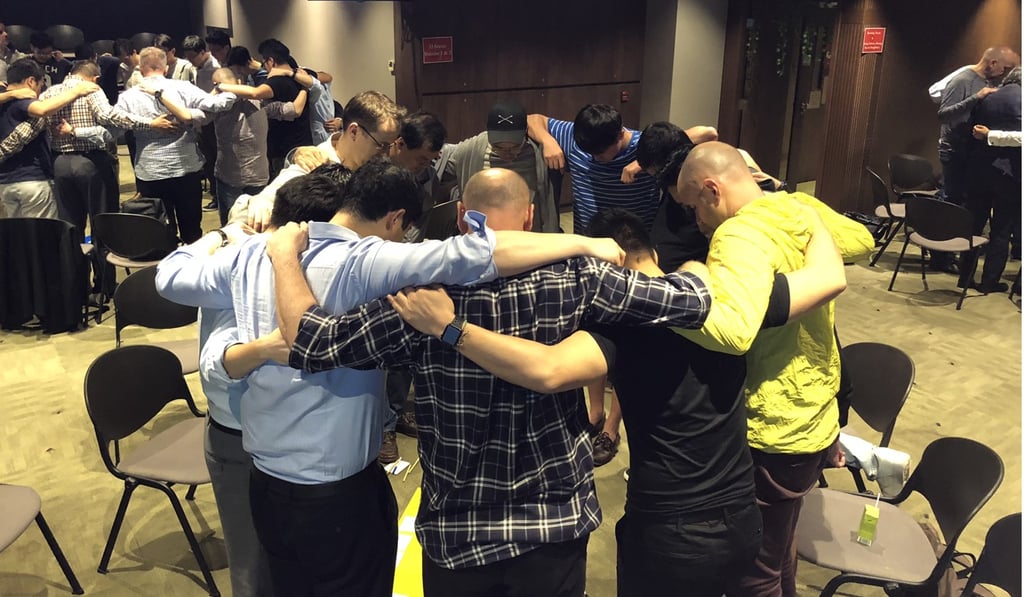Materialism, sex addiction, defensiveness: how a men’s ministry creates space to open up
- David was a sex addict, Andrew was a neglectful dad, Brendan was taught to bottle up emotions; each found the Men’s Fraternity, and a space to share their pain and heal
- The Hong Kong group accepts men of all faiths and none, who offer each other support without judgment and discuss issues such as marriage, money and work

It can be a lonely world for men, who may feel they have no one to turn to as they face the demands of work and home life in a pressure-cooker city like Hong Kong. Men are often conditioned by society to appear tough, never to show emotion, or to talk about wounds and feelings.
That’s how food industry executive David (not his real name) felt, until he discovered Men’s Fraternity, a men’s ministry at the English-speaking international church Island ECC, in Hong Kong’s Quarry Bay neighbourhood.
Established in 2002, Men’s Fraternity seeks to create a safe, authentic community for men to meet and share, support one another and grow in wisdom, faith and strength. The group has grown from eight to more than 100 men.
David’s story began on a beach in 2012, when he proposed to Tina (also not her real name), and they began preparing for a dream wedding on the Thai resort island of Phuket.

To support his fiancée’s Christian faith and explore his own, David attended the church’s men’s conference. There, he heard author and Pure Desire Ministries co-founder Dr Ted Roberts speak about sex addiction, and signed up to attend Men’s Fraternity meetings, which welcome all men regardless of their faith.
Pastor Daniel Tse says weekly sessions each Tuesday evening begin with a meal, followed by a member or guest sharing a TED-style talk. Then they divide into small groups depending on what “track” members want to discuss, such as marriage, parenting, money or the workplace.
